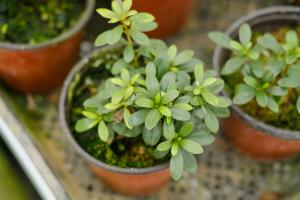Should You Water Your Garden After Planting?
Planting a garden is an exciting and satisfying adventure, but it is also a significant responsibility. One of the most essential tasks is watering your plants after planting. The question is, should you water your garden after planting? The answer is yes, and here’s why.
Reasons to Water Your Garden After Planting
The following are the key reasons why you should water your garden after planting:
1. Water Helps Your Plants Thrive
Water is an essential element that helps your plants to thrive. When you water your garden after planting, you give the plants the hydration they need to grow healthy and strong. Watering regularly is necessary when plants are trying to establish and develop their roots. Once the roots are established, they will be able to tolerate dry periods more easily.
2. Water Helps the Soil Absorb Essential Nutrients
Watering your garden after planting helps to soften the soil, allowing essential nutrients to be absorbed more easily. It is vital to water your garden regularly, especially during the early stages of plant growth, when the roots need as much moisture as possible to absorb nutrients effectively. Plants that receive frequent watering will grow faster and produce higher yields than those that don't get enough water.
3. Water Helps Prevent Root Diseases
When you water your garden after planting, you reduce the risk of root diseases. Excessive moisture at the plant's base serves as a breeding ground for fungi and bacteria, which can cause root rot and other diseases. A well-watered garden ensures that the soil is moist, not waterlogged, and reduces the chances of harmful bacteria and fungi thriving.
How to Water Your Garden After Planting
Now that you understand the importance of watering your garden after planting, here's how to do it:
1. Time Your Watering
You should time your watering to ensure that the plants receive enough hydration without overwatering them. It is best to water your garden at dawn or dusk as the air is cooler and less likely to evaporate the moisture too quickly. Avoid watering during the hottest part of the day as this can cause the water to evaporate too quickly and increase the chance of leaf burn.
2. Water Deeply
When you water your garden, do so thoroughly to ensure that the moisture reaches the plants' roots. A shallow watering will not adequately penetrate the soil and can cause the roots to grow close to the surface, which can make the plants more susceptible to drought stress. A deep watering ensures that the moisture reaches the plant's roots, encouraging deep root growth and increased resilience to drought conditions.
3. Avoid Overwatering
Overwatering can be as harmful to your garden as underwatering. When you overwater, you risk saturating the roots, which can lead to root rot and other diseases. Instead, it is best to water your garden only when necessary, checking the soil regularly to see if it needs watering. A good rule of thumb is to water when the top inch or two of the soil feels dry to the touch.
In Conclusion
Watering your garden after planting is critical to the growth and development of your plants. The right balance of moisture helps plants to thrive, absorb nutrients, and resist diseases. Watering your garden should be done regularly and with care, ensuring that you provide enough hydration without overwatering. With these tips in mind, you can ensure that your garden grows healthy and strong.

 how many times do yo...
how many times do yo... how many planted tre...
how many planted tre... how many pine trees ...
how many pine trees ... how many pecan trees...
how many pecan trees... how many plants comp...
how many plants comp... how many plants can ...
how many plants can ... how many plants and ...
how many plants and ... how many pepper plan...
how many pepper plan...































